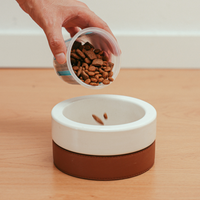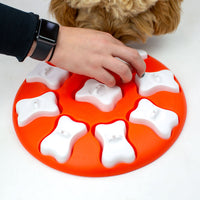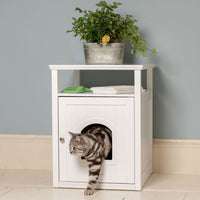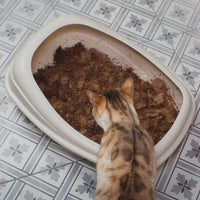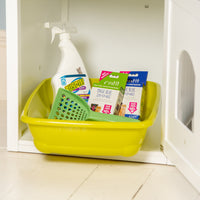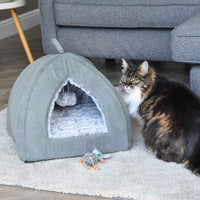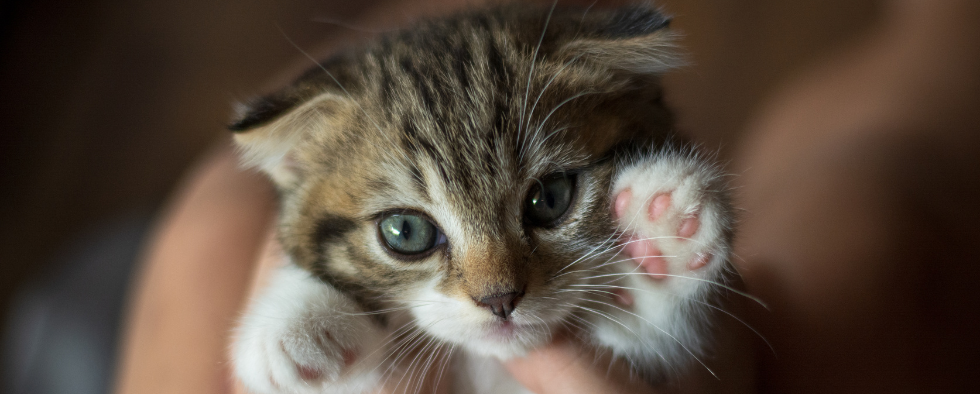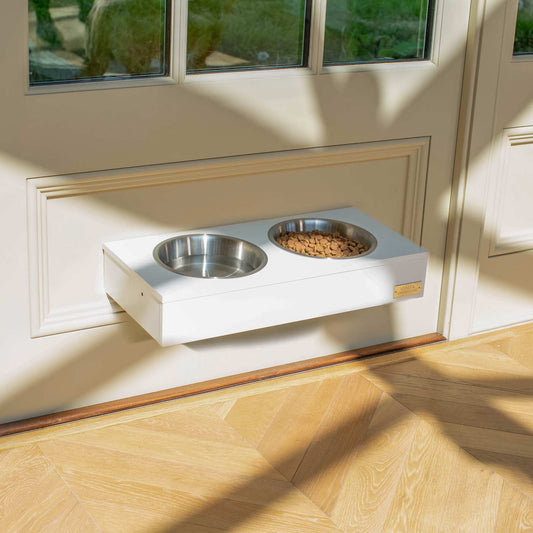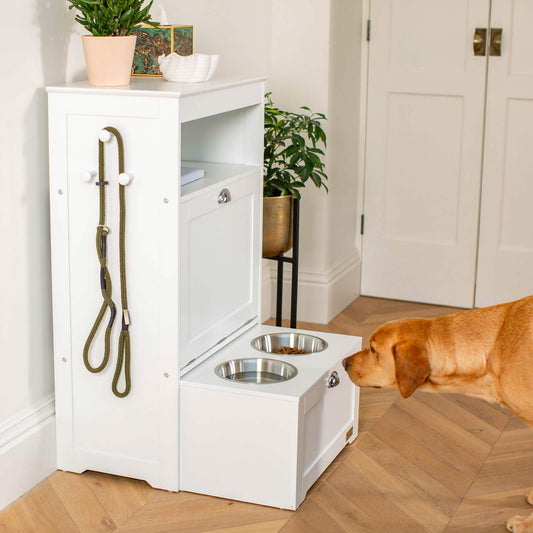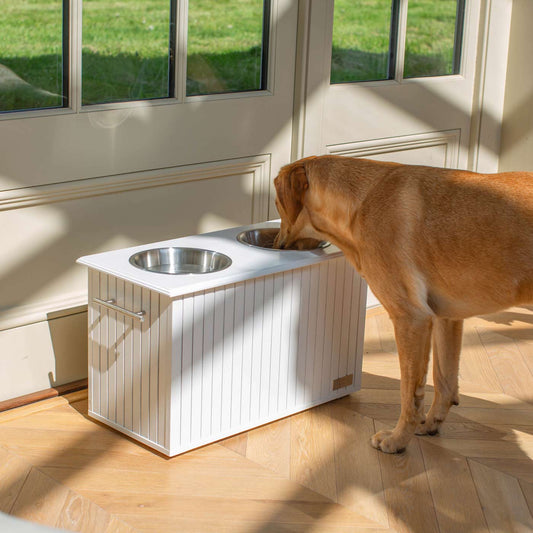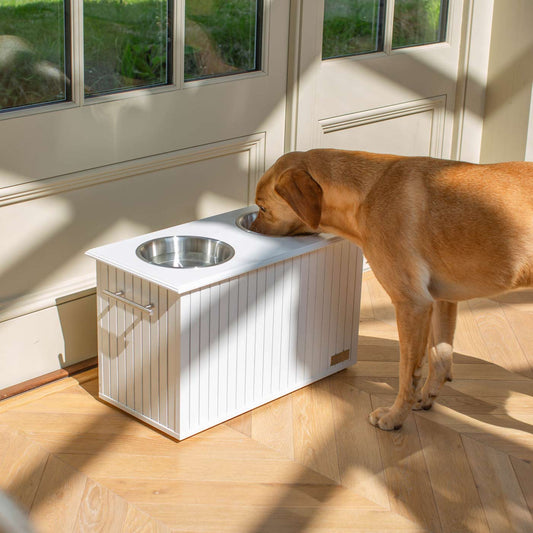Getting a new kitten or cat is so exciting, but if you’re a first-time pet owner it can also be slightly daunting. There are a few things to consider when introducing the new arrival to their new family. Here we give you some things to think about so you can be fully prepared for your kitten’s first week in their new home. From bringing them home, to getting them used to new surroundings, here are some handy tips and advice for every new cat owner.
Make Sure Your House Is Cat Proof

This should be done in advance of their arrival ready for day one. Cat proofing the home is about creating a safe environment for inquisitive noses! Any room that your cat will be allowed in needs to be safe for them, which means no wires for them to play with and nothing that they might scratch or damage. Be aware of poisonous houseplants and keep them out of reach; avoid full length curtains in their room as they may try to climb them; and check for any other hazards or small places that they might get stuck.
Cat proofing the home entails a lot of common sense - if you think something might pose a hazard then remove it from their living area. If there’s something that might look enticing to a kitten that you don’t want them to ruin, put it in another room.
We have a full article about Cat Proofing Your Home which may be worth a read.
Bringing Your Kitten Home
So, you’ve double and triple checked that your home is safe and you have ticked off everything on your Kitten Shopping List; it’s now time to bring your kitten home! Travel day is all about keeping them safe on the journey, no matter how long or short it might be, and keeping them as calm and settled as possible. Make sure you have a suitable cat carrier that can be fastened safely in the car. We’d suggest popping a blanket inside to make it comfortable. If you have a long journey ahead, think about packing a travel bowl and some water so they can at least have a drink on the way
When you get home, it is best that you introduce them to their new environment slowly and calmly. If you have a large family it might be best for them to introduce themselves in stages. Teach children to be calm and gentle. Some kittens will be especially nervous at first and it’s imperative to provide a home that feels safe and inviting.
You will also need to show kitten where everything is and by this we mean their food, their litter tray and their bed!
Introducing A Kitten To A Litter Tray
Your kitten will probably be litter trained by the time you bring them home; cats like to be clean and they’re fast learners. They won’t know where their litter tray is in their new home though, and nerves may effect their toilet behaviour. When you bring them home take them to the litter tray so they know where to find it. If they’re calm, try popping them in and let them feel the litter with their feet. It won’t take them long to know that it’s the place for them to do their business. It might take them a little while to pluck up the courage to use it, but don’t despair if it does. Be patient and keep an eye on them. You can take them back to the litter tray after a little while to remind them if you wish.
Introducing A Kitten To A Scratch Post
In the same way you introduced them to the litter tray, do the same with the scratch post. You need to start as you mean to go on and that means showing them where they can scratch as opposed to letting them find a spot of their own that they shouldn’t scratch. Take them to the scratch post so they know where it is. You could show them what to do by scratching your own nails against the post, or if they’re calm and relaxed gently put their paws against the post to show them what to do.
Don’t force anything; if they run or back away you can always come back to it later. Slowly but surely they’ll get used to it. You could try rubbing or sprinkling catnip into the post to make it more appealing.
The scratch post should be placed somewhere near their bed as it’s often the first thing they do when they wake up.
Getting Your Kitten In To A Routine

You might think a routine is just for dogs, but a set plan of action can help settle kittens too. Feeding should be at set times - usually once in the morning and once in the late afternoon. (You might leave dry food down for them to graze on throughout the day as well). You should also try your best to get them into a nighttime routine. Kittens are naturally active at dawn and dusk but they can soon learn to sleep when you do. Try to get them settled before bed and don’t feel guilty about leaving them in their room with their bed and other things. It might be tempting to let them upstairs with you, but we’d suggest you start as you mean to go on and get them into a routine where they sleep in their own bed.
Make Sure They Get Plenty Of Rest
Kittens need lots of rest. They can sleep for up 20 hours a day when they’re young and even adult cats can sleep around 16 hours. It might be tempting to spend all your time with them when they first come home, but it’s really important to give them lots of downtime. If they’re sleepy let them rest until they naturally wake. When they’re sleeping their brains are preparing for the waking hours of learning.
Ensure You Have Plenty Of Time To Spend With Them
In the first few days, whilst they may need lots of sleep, they will also need lots of supervision. It might be worth taking a few days off work to ensure you have the time to stay in the house. Kittens need to get to know you and they also need help to learn right from wrong. You might need to be there to give extra encouragement to use the litter tray or the scratch post for example. They’ll also like the emotional support, to help them settle into their new home.
Your kitten will need to get used to being handled and that can only happen if you’re around to do that. For the first day or two, it might be best not to hold them for long periods, but give them time to adjust with occasional strokes throughout the day. After a couple of days when they're used to you being around, you can start to pick them up more and get them used to being handled by you. This is the start of an emotional bond and will help to mould the cat your kitten will grow to be.
Letting Your Kitten Outside For The First Time

Some cats will remain indoors for their entire lives and this is absolutely fine as long as you start as you mean to go on. Many pedigree breeds are kept as indoor cats and, with the right accessories and cat furniture, will live long healthy lives indoors. But if your cat is going to be an outdoor cat, you will need to take steps to get them used to it.
You shouldn’t let your cat outside in the first few days. Wait at least two weeks for them to settle and assess the situation. They should have had all of their vaccinations and they need to be used to their new home. Initially this should be done under supervision until they’re quite happy with the new surroundings. We wouldn’t suggest letting them have free-rein outdoors until they’re comfortable with the garden and they’ve been neutered to stop any unwanted pregnancies. This is usually done between 4 and 6 months old, but we’d suggest speaking to your vet about this to see what age they think is best.
You might want your cat to wear a collar if they do venture out. This can be accessorised with an ID tag for security and they often come with a bell to notify birds that they're coming. Don't forget to have your kitten micro-chipped too - whether they go outdoors or not. many breeders have their litters microchipped before you collect them, but if your kitten isn't microchipped then make a plan to get them done.
Stay Calm And Enjoy Getting To Know Them
Whatever you do, remember to stay calm and enjoy getting to know your new furry family member. Things may not go entirely to plan - if they have an accident outside of the litter tray, don’t scold them, but rather encourage them to use the tray. If they don’t use the scratch post straight away, persevere. It's a learning curve for both of you and there are no definitive answers to some of the questions that may be raised in those first few days. Just remember not to panic and that everything that happens to you is probably happening to lots of other pets owners!
If you need any more information, then take a look at our Information Hub where we have a host of articles about pets. You’ll find the answer to all kinds of cat related questions in there.













